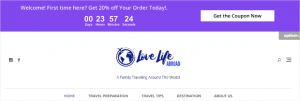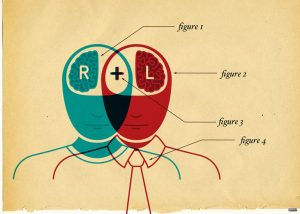When you’re working on getting a website built for your company or organization, it is all too easy to just let the Web designer go willy nilly and follow their own ideas about what your site should look like. How this usually shakes out is a design that doesn’t suit the company or organization at all. You end up with a total abomination that you’ve spent thousands of dollars on, and that money is just thrown away.
Preventing this is actually pretty easy. You and your Web designer need to get to know each other. But, what do you need to know? Here are 5 questions that your Web designer should ask you, and then 5 more that you should ask them, to get acquainted and be better assured of a final product that you’ll be proud to associate with your organization.
What Your Web Designer Should Ask You
1. What are a few sites outside your market segment that look good to you?
This is a crucial question, because it opens a lot of doors and shows the Web designer the aesthetic preferences of the customer. You do want to make sure, though, that you’re comparing Web pages with similar necessities. For example, if you sell archery equipment, the sites you point to should have a large e-commerce section. This question gives the designer an idea of what you like in the way of look-and-feel, so they can start developing the perfect outline for your site.
2. What are a few sites inside your market segment that look good to you?
Unless you don’t have any competitors or other reference points, this should be a stock question that any reputable Web designer asks. This forces both you and the designer to look at what’s already out there in your audience, as well as what pages you enjoy the most among your competitors’ websites.
3. What does a conversion look like to you?
Some people might think this is a no-brainer, but it’s actually a valid question. For some businesses, a conversion is a sale, point blank. However, other businesses make most of their money in other ways, like from a newsletter. In this case, a conversion would be a subscription to your newsletter instead of a sale.
4. What technical considerations do we need to keep in mind?
You might not have an immediate answer to this question, but it’s something your Web designer needs to know. Any limitations on what the designer can and can’t do, as well as the environment they’re working in, are important facts to have before the design begins. After all, if you have an in-house server for hosting or a custom backend to handle e-commerce, the Web designer needs to know about it.
5. Who makes the final decision on approving the designs?
Your Web designer needs to know who to include when they’re sending mock-ups or prototypes of the Web pages. There should be one single point of contact on the client side making the final decision, and the designer needs to know who that is. That way, there is less chance of miscommunication or bottlenecks in communication. If there are multiple people involved in the approval process, it is important to have scheduled meetings at specific milestones in the project, with the meeting documented either in email or recording and then sent to everyone involved.
So, those are the questions every Web designer should ask their potential clients. There are also questions every client should ask their potential Web designer. Here they are!
6. Who will work on my project?
It’s vital to know not only who your point of contact is, but also who is going to be working on your site. If you hire a Web designer based on that person’s reputation only to find out your work is being outsourced to someone else, that can sometimes lead to disappointments. Not always, but sometimes. You should also know what time zone your designers are in, so you can be sure to contact them during appropriate business hours. If your main point of contact is not the actual designer, it is totally within your rights to ask for the email or phone number of the designer, to aid in your comfort level.
7. How long will it really take?
As the client, you probably need to plan for your website’s launch. In order to do that, you need a realistic timeline for when the project will be completed. Make sure the schedule your Web designer gives you includes a buffer for unforeseen problems that might crop up right when you don’t need them to. Remember Murphy’s Law, and plan accordingly.
8. Can I add more features after we get started?
Sometimes, you realize after a Web design project is started that you want more features added to the site. While no Web designer should be able to give you an exact quote for this, since they don’t know the scope of these as-yet-unimagined new features, but they should be able to provide you with an hourly rate. If you have specific features in mind but you aren’t sure of them yet, let the designer know; they might be able to price these cheaper during the initial stages, or tell you what the cost would be to add them later.
9. What about revisions?
This information is vital to both the designer and the client. A revision is a change in the design, but it usually doesn’t require major scope changes. Think of a revision more as being focused on the layout and aesthetics, and not the basic functionality of the site. In other words, if a Web page doesn’t look the way you want it to, can you have it changed? Also, how many revisions are included in the base price, and when do they happen?
10. Are there any hidden costs involved?
You should know in advance as much of the total cost as is possible. There are expenses that the Web designer isn’t responsible for, and ones that they are responsible for. Knowing what to expect keeps you from having serious sticker shock when the final invoice comes in. Remember that things like domain name registration and Web hosting fees won’t be free, and ask up front what these costs will be.
Okay, there you have it, 5 questions each for you and your Web designer to ask each other. These questions, and any others that you think of, will help get the ball rolling and lead to a successful design project.
(212)
Report Post



